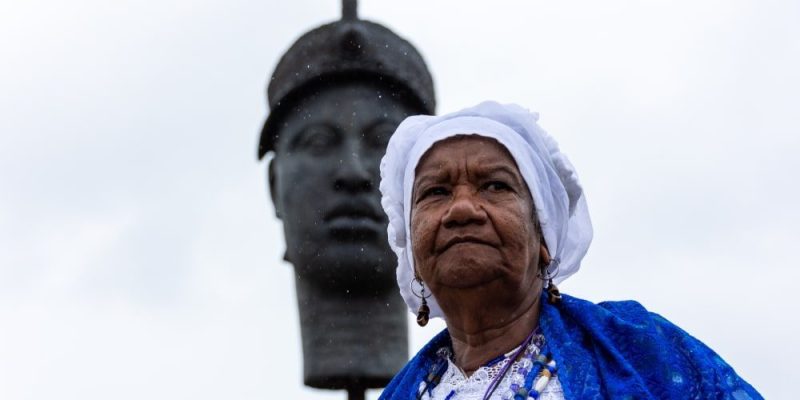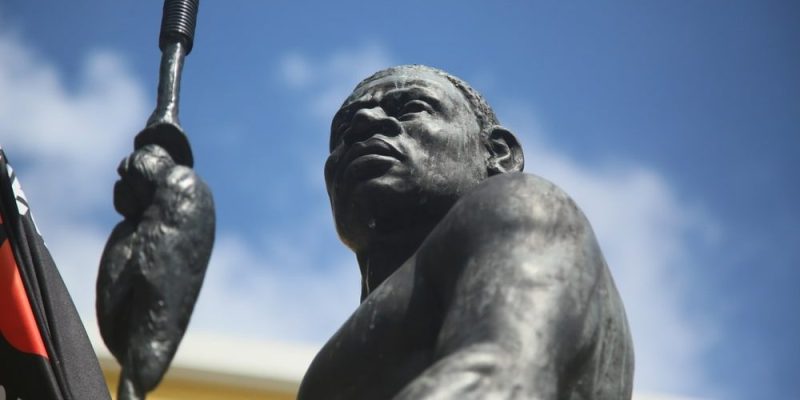We explain what Black Consciousness Day is in Brazil, when it is celebrated and why. Also, its origin.

What is Black Consciousness Day?
Black Consciousness Day, also called National Zumbi and Black Consciousness Day, It is a Brazilian anniversary that takes place on November 20. It was introduced into the Brazilian calendar with the aim of promoting reflection on the role of black culture in Brazilian society. The date commemorates the fight for freedom of enslaved black people in the colonial era.
During Black Awareness Day, reflection on Afro-descendant citizenship throughout Brazilian history, including today, is encouraged. It is considered a day of combat against racism and defense of human rights.
On the eve of Black Consciousness Day, various communities of the black movement (cultural movement that fights for the rights of black Brazilians) organize talks, celebrations and educational events aimed at combating prejudice, questioning social roles and valuing black ethnic heritage .
When is Black Consciousness Day celebrated and why?

Black Consciousness Day takes place on November 20, in commemoration of the murder of Zumbi dos Palmares (1655-1695), a black North Brazilian warrior who fought against the slave order.
Zumbi was the last leader of the Quilombo dos Palmares. The quilombos were independent and self-sufficient communities, made up of African slaves who escaped from colonial plantations.
Then, Quilombo dos Palmares was the largest community of free slaves in Brazil. It was made up of different villages and occupied part of the territory of the current state of Alagoas (at that time “Capitanía de Pernambuco”). Its resistance to the colonial and slave order lasted more than a century, approximately from 1580 to 1710. A majority black population and white and indigenous minorities lived there.
The quilombos' fight against the slavers included military resistance against the troops of the Royal Army and against the bandeirantes mercenaries (mercenaries hired by the plantation owners to subdue the rebellious slaves). This is the fight for freedom and human dignity that the commemoration of Black Consciousness Day seeks to vindicate.
What does Black Consciousness Day represent?
Black Consciousness Day represents the anti-racist struggle of black groups throughout Brazilian history. Like other European colonies, Brazil was founded as a racist state, as it became rich from the exploitation of black people subdued in Africa and transported to America to be sold as slaves.
Through the commemoration of this day, we seek to make this tragic aspect of Brazil's history visible and reflect on the racist elements that persist in Brazilian culture today.
Origin of Black Consciousness Day
Since the 1960s, Brazil's national calendar commemorated the abolition of slavery, which was banned on May 13, 1888 with the Golden Law. However, in the 1970s, the black movement began to criticize this commemoration for being devoid of representativeness of black culture.
Some groups of the black movement met in 1971 in Porto Alegre with the purpose of questioning the legitimacy and representativeness of May 13 and making visible the struggle of their ancestors. This gesture was the root of Black Consciousness Day.
Among the participating social activists were Antônio Carlos Côrtes, Oliveira Silveira, Ilmo da Silva, Vilmar Nunes, Jorge Antônio dos Santos (also known as Jorge Xangô) and Luiz Paulo Assis Santos. They were members of the Palmares Group, dedicated to studies and research on Brazilian black heritage.
The first commemorative event of what later became Black Consciousness Day took place on November 20, 1971, in an act of cultural resistance at the Marcilio Dias club in Porto Alegre. There, tribute was paid to Zumbi dos Palmares, a black warrior who fought against slavery in northeastern Brazil.
References
- Silva, VCP (2014). Black Consciousness Day in Brazil: some reflections. Bilros History Magazine: History(s), Society(s) and Culture(s)2(03).
- Paula, B.X. (2011). Afro-Brazilian history and culture and the contribution of populations of African origins in Brazil. Historical Studies–CDHRP3.





